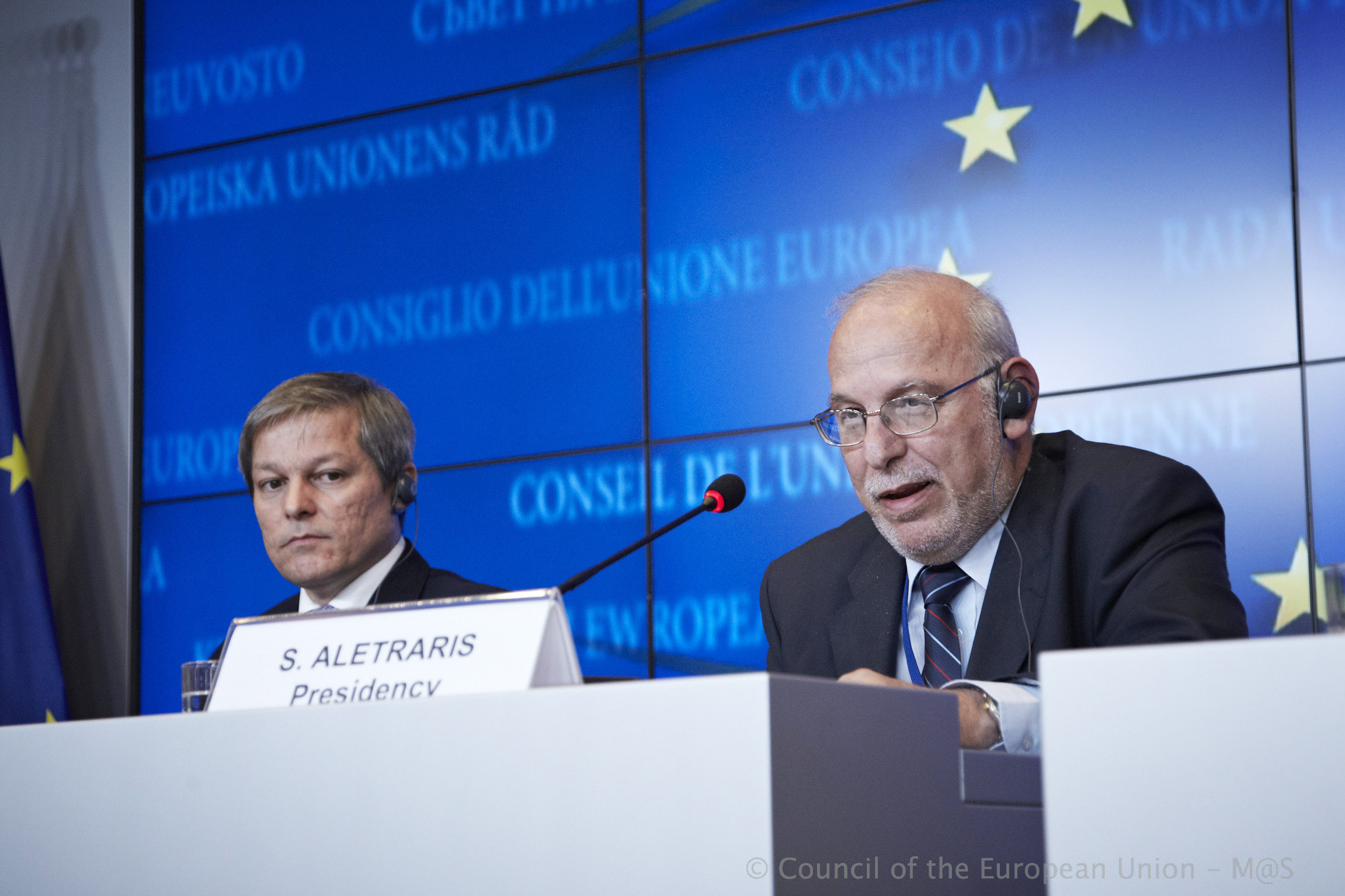Agricultural Ministers continued to grind through their discussions on CAP2020 issues under the Cypriot Presidency at the Agricultural Council meeting on 22 and 23 October earlier this week. Three issues were on the agenda: internal convergence, support for young farmers in Pillar 1, and a strengthened role for producer organisations. The background note prepared by the Presidency is here, and the conclusions of the meeting are reported here. The discussions took place on the basis of two questionnaires circulated by the Presidency on internal convergence and young farmers, respectively.
Internal convergence
Many member states applying the Single Payment Scheme (SPS) have voiced concerns about the difficulties in achieving a uniform level of distribution of direct support at national or regional level (internal convergence) by 2019. The Commission has indicated its openness to address these concerns and to consider suggestions for some flexibility in the rhythm and methodology of progress, without prejudice to the principle of achieving internal convergence. The ministers discussed what form such flexibilities might take.
Many Ministers accepted that a direct payment system based on a purely historical payment level was outdated and that member states applying the SPS should achieve significant and irreversible progress towards internal convergence by 2019. Others question the overall objective of the proposal in an almost fully decoupled system and requested flexibility.
While some Ministers supported the rhythm and methodology proposed by the Commission, most requested adjustments, particularly a smaller first step in 2014, taking account of greening payments, a longer transition period (beyond 2019) and a parallel approach on internal and external convergence.
In return, some Ministers wanted any flexibility on internal convergence to imply less generous possibilities for coupled aid. A number of member states applying the single area payment scheme (SAPS) made clear that their support for the flexibility requested by member states applying the SPS was conditional on a satisfactory reply to their request for some recent historical elements (national top-ups, coupled support) to be taken into account in their transition to the new payment scheme
Young farmers’ Scheme
The Commission proposed a young farmers scheme under both pillars of the CAP, including that the scheme in the first pillar should be of a mandatory nature. However, the progress report drawn up under the Danish Presidency in June 2012 noted that “while the special scheme for young farmers is broadly welcomed, a majority of delegations want a voluntary scheme, leaving Member States to decide whether to operate the scheme and how to shape it according to their needs, while other delegations could support the proposed mandatory scheme.”
A new proposal has been recently debated at Working Party level that in effect implies that member states would be required to implement a scheme in favour of young farmers either under the first or under the second pillar. After the Council meeting, the Presidency concluded that almost all delegations acknowledged that ageing of the farming population is an issue which should be addressed in an effective and appropriate manner. However, it also noted there was insufficient support for a mandatory 1st pillar scheme alongside the voluntary 2nd pillar scheme (as proposed by the Commission), as well as for the alternative suggestion for a mandatory 1st pillar scheme with an opt-out for Member States supporting young farmers under the 2nd pillar. Ministers are clearly sticking to their desire that the Pillar 1 scheme should be completely voluntary.
Producer organisations
The proposal for a Single CMO regulation includes measures to strengthen the bargaining power of farmers and improve the functioning of the food supply chain. Specifically, the Commission proposes to extend the rules for producer organisations (POs), associations of producer organisations (APOs) and inter-branch organisations (IBOs) in the fruit and vegetables sector to all sectors. The progress report established by the Danish Presidency in June 2012 highlighted that a majority of delegations oppose the proposed obligatory recognition of these organisations in all sectors, and instead support the Presidency suggested amendment whereby recognition is voluntary.
At this week’s meeting, Ministers continued to disagree on how best to achieve the objective of strengthening the position of primary producers in the food chain. The Presidency conclusions recognised that there was insufficient support for the proposed compulsory recognition of producer and inter-branch organisations in all sectors, nor for adding specific other sectors to those already subject to such recognition (among others the milk sector and the fruit and vegetables sectors). Concerning competition rules most delegations supported the Commission proposal but a number of others considered that more work had to be done at the technical level with regard to the approach to producer organisations holding a dominant position on the market.
Next steps
The Cypriot Presidency still hopes that the Council can adopt a partial general approach on the main CAP regulations in November or December. At this stage, all eyes are on the publication of the budget numbers in the MFF negotiating box which the Presidency has promised to release before the end of this month. The next meeting of Agricultural Ministers is scheduled for 28-29 November. This is a week after the special European Council meeting called specifically to discuss the MFF budget proposals for the 2014-2020 period. The outcome of that meeting will tell us whether the CAP reform timeline is on target or not.
This post was written by Alan Matthews.
Picture credit: Consilium photographic library


